The views expressed in our content reflect individual perspectives and do not represent the authoritative views of the Baha'i Faith.
This article was written by Alice R. Beede who was an early Baha’i who accompanied Abdu’l-Baha on many of his journeys through the west.
After a morning talk given by Abdu’l-Baha at his apartment No. 4 Ave. de Camoens on 15 October 1911, all those present were invited that Sunday afternoon to meet him at four o’clock at 22 rue Seeden Rollin pre Saint Gernais (Seine) outside the walls of Paris, where a real Baha’i settlement work is carried on by Monsieur V. Ponsonaille and his good wife. They are poor people. He is employed as a collector for one of the large department stores in Paris. Having received the [Baha’i] message, he felt his work for the Cause of God was among the very poor children, waifs and those who had no parents; so with his wife, some years ago settled his home here and by going without their noon day meal (which to the French means much) they could give it to these little ones.
They started in an old car where they met together to read the Tablets and hear the Word of Baha’u’llah. It was not long before many came and it grew so that the clergy of many sects desired to have it consolidated under them. Monsieur Ponsonaille did not consider this the way to serve best and he declined all these offers. At last, they grew so very jealous that they, with the help of the priests, took the car from him. The Baha’i friends in Paris offered to build a place for his work and Monsieur Ponsonaille told them if they would furnish him the boards and nails that he would build it himself, which he did, and it was here that we went, and after three months spent going around Paris every day, I assure you I had never seen such a dirty, miserable quarter.
After leaving the train on the main street, we walked down to the end of a narrow lane or street without sidewalks, on which doors opened to places where soldiers and women were drinking and screaming, while from the small windows bedclothes were hanging out, and women and children could be seen. It was with joy we at last saw a familiar face and Monsieur De Scott, the artist, pointed to the small gate through which we passed and by the discarded car into a small board cabin about 20×25 feet. At one end was a raised platform and desk of rough boards. I can only say as my eyes fell first upon The [Baha’i symbol of the] Greatest Name hanging in a frame from this desk and I saw the crowd of miserably poor, dear little ones gathered there, and as my ears caught the music of their voices (for they were singing), tears filled my eyes and a great lump choked me.
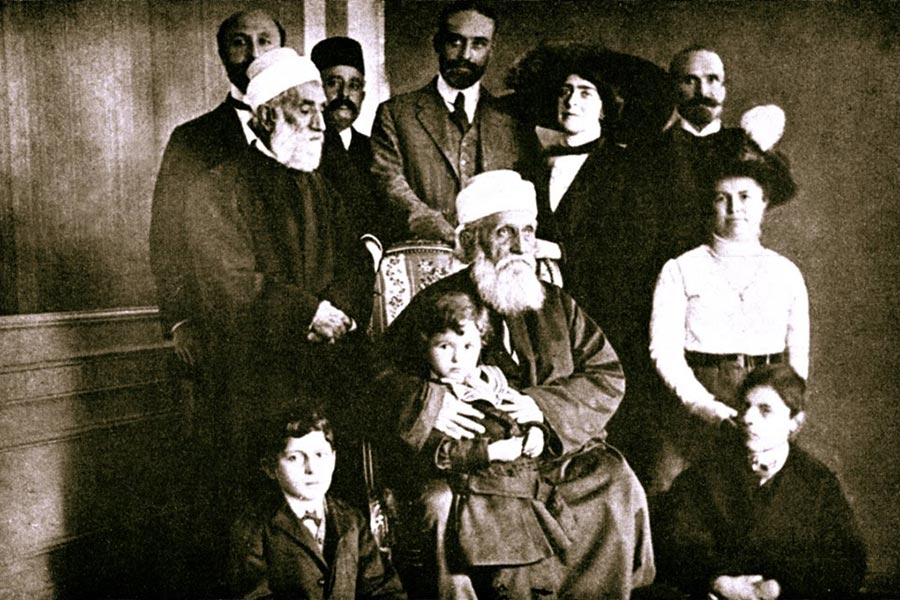
Abdu’l-Baha with Baha’is in Paris (1912)
Then I looked and saw we were but a half dozen who had come as guests, and all, like myself, were deeply affected. It was Madam Ponsonaille, a woman with a strong, kind and most intelligent face, who evidently had taught the children to sing and who with her whole heart was leading and keeping time for them, for they had no instrument. After the song Monsieur Ponsonaille read a Tablet sent by the Master, for he called Abdu’l-Baha “The Master,” and it is quite evident that they all know him as the Master.
Monsieur Ponsonaille, who has a delicate, most refined face—that of a gentleman in its fullest sense—talked for a time; they sang again, and then all their little heads were turned towards the entrance and it was evident that their hearts were full of expectancy and they longed to see the One who had promised to come to visit them. The oldest of these children were not over fifteen—from that down to babies in the arms—all ages and kinds, clothed cleanly in clothes that had no fit, or were misfits rather.
At last there was a silence. Then all arose to their feet as Abdu’l-Baha quickly entered and walked up the narrow centre passage to the front and stood. Monsieur Dreyfus-Barney and Tamaddunu’l-Mulk [two Baha’is who accompanied Abdu’l-Baha] took their places on the side. Monsieur Dreyfus-Barney acted as interpreter. Abdu’l-Baha said:
I am very glad to be here with you. I am very glad to see you all here. I love you very much. I have been in many beautiful houses, but this is more beautiful to me than any of the others, for the spirit of the love of Baha’u’llah is here. You are all receiving the teachings of God and learning how to act and live and some day you will be great and wise for having learned the truth. I have seen many beautiful rich children, but to me you are more beautiful, and I love you all (as Christ loved little children) here. Monsieur and Madam Ponsonaille are your spiritual teachers. They give you food and understanding eternal of God, while your parents are giving you your material food and care for your bodies. You must love these good friends.
Turning to Monsieur and Madam Ponsonaille, he said:
This is a great work you are doing for the love of God in this great day, through the power of Baha’u’llah. Your station is great. Your names will go down through all the ages. Kings and Queens have never been talked of and remembered as you will be. You are workers in the Kingdom of Abha and I am very happy and love you very much.
Then with his head upturned and the palms of his hands upturned together, as if to receive in them the pouring down of the Holy Spirit, he chanted a prayer and blessing, and coming down from the small elevation, on which he was standing, to where the children were, all crowded close around him, and laying his hands caressingly upon some of their heads and taking the hands of others with a loving smile to all, with difficulty he passed down the aisle to the door. Near me were some rough boys whom I was often obliged to quiet before Abdu’l-Baha entered the hall. But after he came they never moved nor spoke and when he passed out they fell over each other in their great desire to have him take their hands.
Outside the door stood Monsieur Ponsonaille, and Abdu’l-Baha, putting his hand inside his gown, took out many gold pieces and gave to him as he bade him good-bye. – from Star of the West, Volume 2, pp. 7-12.


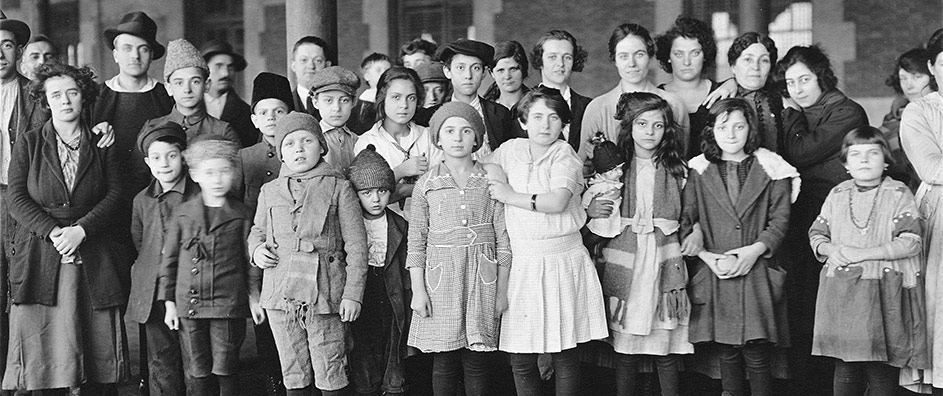

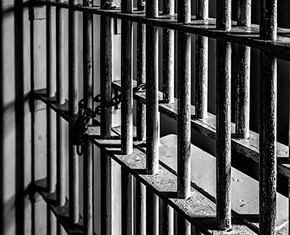
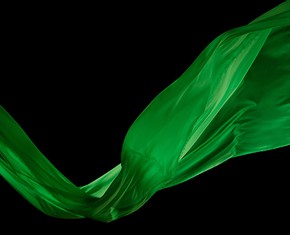
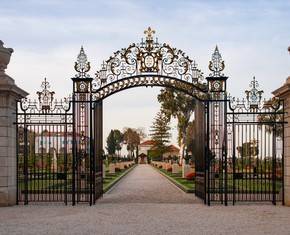









Comments
Sign in or create an account
Continue with Googleor